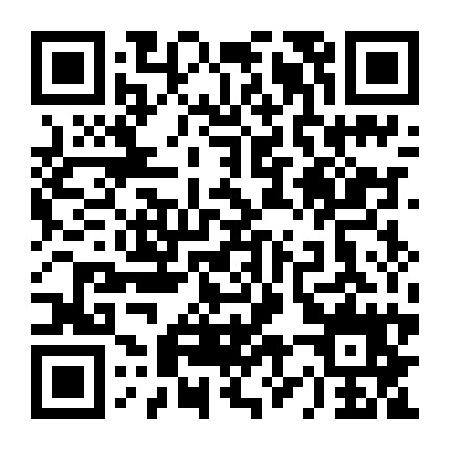医学博士英语统一考试之后,即将迎来各院校的考博英语初试,英语考试的备考,参考历年真题是一个很重要的备考过程,今天新东方在线小编给大家整理了中国科学院2016年考博英语真题02,帮助大家更好的备考,考博英语考试,一起来看看吧!
Part II Cloze Test (15 minutes, 15 points)
Directions: For each blank in the following passage, choose the best answer from the four choices given below. Mark the corresponding letter of your choice with a single bar across the square brackets on your machine-scoring ANSWER SHEET.
Explosions. Radiation. Evacuations. More than 30 years after Three Mile Island, the 21 crisis in Fukushima, Japan, has brought back some of the worst 22 surrounding nuclear power—and restarted a major debate about the merits and the 23 of this energy source. Does nuclear energy offer a path away from carbon-based fuels? Or are nuclear power plants too big a threat? It’s time to 24 myth from reality. One myth is that the biggest problem with nuclear energy is safety. Safety is certainly a critical issue, 25 the tragedy in Japan is making clear. But for years, the biggest challenge to sustainable nuclear energy hasn’t been safety, 26 cost.
In the United States, new nuclear construction was already slowing down even before the partial meltdown at Three Mile Island in 1979. The disaster 27 sealed its fate. The last nuclear power plant to come online started 28 power in 1996—but its construction began in 1972. Today, nuclear power remains 29 more expensive than coal- or gas-fired electricity, 30 because nuclear plants are so expensive to build. 31 are slippery, but a plant can cost $5 billion. A 2009 MIT study estimated that the cost of producing nuclear energy was about 30 percent higher than 32 of coal or gas.
Of course, cost and safety aren’t 33 Concerns about safety lead to extensive regulatory approval processes and add uncertainty to plant developers, calculations, both of 34 boost the price of financing new nuclear plants. It’s not clear how much these construction costs would 35 if safety fears subsided and the financing became cheaper—and after the Fukushima catastrophe, we’re unlikely to find out.
21. A. unfolding B. unyielding C. unwilling D. underlying
22. A. spirits B. crimes C. nightmares D. intentions
23. A. faults B. obstacles C. objections D. drawbacks
24. A. separate B. remove C. exchange D. prevent
25. A. if B. as C. yet D. although
26. A. only B. nor C. but D. or
27. A. regularly B. severely C. invariably D. merely
28. A. transcending B. dispatching C. delivering D. saving
29. A. exclusively B. considerably C. deliberately D. conversely
30. A. interestingly B. roughly C. mainly D. surprisingly
31. A. Surpluses B. Consumptions C. Deficits D. Estimates
32. A. those B. that C. both D. either
33. A. unreleased B. unmatched C. unrelated D. unmarked
34. A. which B. them C. that D. whom
35. A. remain B. fall C. flow D. sway
考博必备!历年真题及答案
考博精品好课,就选新东方!

 资料下载
资料下载
【必看】考博英语词汇10000例精解
发布时间:2020-09-02关注新东方在线服务号
回复【10000】免费获取
医学考博英语作文核心基础词汇整理
发布时间:2020-04-15关注新东方在线服务号
回复【医学考博】获取
医学考博英语阅读理解练习资料
发布时间:2020-04-15关注新东方在线服务号
回复【医学考博】获取
法学考博英语高频词汇word版
发布时间:2020-04-15关注新东方在线服务号
回复【医学考博】获取
医学博士英语统考真题及解析
发布时间:2019-12-26关注新东方在线服务号
回复【考博真题】获取
全国医学博士外语统一考试真题
发布时间:2019-12-26关注新东方在线服务号
回复【考博真题】获取
中科院考博英语复习备考实战经验分享
发布时间:2019-12-26关注新东方在线服务号
回复【考博经验】获取
中科院考博英语真题练习资料
发布时间:2019-12-26关注新东方在线服务号
回复【考博真题】获取

关注新东方在线服务号
关注新东方在线服务号,
免费获取考博必看干货资料

 推荐阅读
推荐阅读
沈阳工业大学2022年博士研究生招生考试英语真题B卷
来源 : 沈阳工业大学 2022-12-26 16:19:18 关键字 : 沈阳工业大学2022博士英语真题
沈阳工业大学2022年博士研究生招生考试英语真题A卷
来源 : 沈阳工业大学 2022-12-26 16:18:19 关键字 : 沈阳工业大学2022博士英语真题
沈阳工业大学2021年博士研究生招生考试英语真题B卷
来源 : 沈阳工业大学 2022-12-26 16:09:06 关键字 : 沈阳工业大学2021博士英语真题
沈阳工业大学2021年博士研究生招生考试英语真题试卷A卷
来源 : 沈阳工业大学 2022-12-26 16:07:31 关键字 : 沈阳工业大学2021博士英语真题
沈阳工业大学2020年博士研究生招生考试英语真题试卷
来源 : 沈阳工业大学 2022-12-26 16:04:42 关键字 : 沈阳工业大学2020年博士英语真题


 考博好课推荐
考博好课推荐
基础薄弱,备考迷茫,送纸质资料
价格 : ¥2280元
资深教师,教学简明,直接有效!
价格 : 0元
 资料下载
资料下载
关注新东方在线服务号
回复【10000】免费获取
关注新东方在线服务号
回复【医学考博】获取
关注新东方在线服务号
回复【医学考博】获取
关注新东方在线服务号
回复【医学考博】获取
关注新东方在线服务号
回复【考博真题】获取
关注新东方在线服务号
回复【考博真题】获取
关注新东方在线服务号
回复【考博经验】获取
关注新东方在线服务号
回复【考博真题】获取

 阅读排行榜
阅读排行榜
 相关内容
相关内容